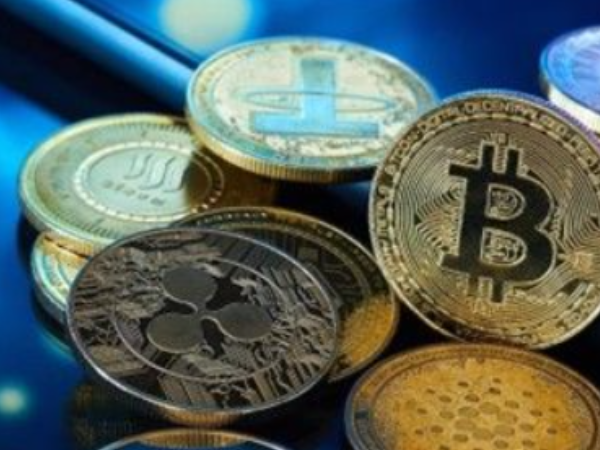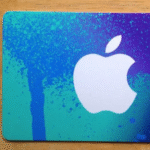Proven Strategies for Making Money with Crypto
Making money with crypto in Nigeria is no longer a mystery—it’s about applying the right strategies and staying disciplined. Whether you’re just starting out or already an experienced trader, there are multiple paths to consistent earnings. Below, we’ll explore 7 proven ways Nigerians are making money with crypto today.
How to Trade Crypto in Nigeria — A Complete Guide to Getting Started
Trading crypto is one of the most popular ways to make money from crypto in Nigeria. But success in trading doesn’t come from luck; Trading crypto profitably doesn’t happen by chance—it comes from truly understanding the market, using the right tools, and carefully managing your risks. In Nigeria, this has become increasingly important as more people look for financial alternatives. At its core, crypto trading is simply the act of buying and selling digital currencies like Bitcoin, Ethereum, and USDT to earn from price movements. But beyond just trading for profit, many Nigerians are embracing crypto as a way to hedge against inflation, grow wealth, and tap into global financial opportunities—all without relying solely on traditional banks.
How to Trade Crypto in Nigeria — Tools You’ll Need
Before you begin trading, you need the right setup. Here’s what to get in place:
- A secure crypto wallet (software or hardware)
- An account on a trusted exchange (e.g., Binance, XBanka, KuCoin)
- Stable internet connection
- Basic understanding of technical analysis and market trends
Having these tools ensures your funds are safe and you’re prepared to make informed decisions.
Choosing the Best Crypto Exchange for Trading
Not all exchanges are created equal. When learning how to trade crypto in Nigeria, it’s important to choose an exchange that:
- When choosing a crypto exchange in Nigeria, it’s important to look out for platforms that:
- Support NGN deposits or allow seamless local currency funding
- Charge low trading fees to maximize your profits
- Provide strong security features to protect your assets
- Offer reliable customer support when you need assistance
- Some popular options include:
- Binance – A global exchange with P2P trading options tailored for Nigerians
- XBanka – A trusted Nigeria-based platform known for fast payouts and local reliability
- KuCoin – A versatile exchange offering a wide range of altcoins and advanced trading tools
How to Trade Crypto Pairs Like a Pro
When trading crypto, you’ll often deal with crypto pairs, such as:
- BTC/USDT (Bitcoin to Tether)
- ETH/BTC (Ethereum to Bitcoin)
- NGN/USDT (Naira to Tether)
Here’s what you need to know:
- Buy low, sell high is the most basic rule.
- Track charts and trends using tools like TradingView.
- Understand volume, resistance, and support levels to time your trades better.
How to Trade Safely — Risk Management Tips
Many people lose money in crypto trading due to a lack of discipline. To trade safely:
- Use stop-loss orders to limit losses
- Never invest more than you can afford to lose.
- Diversify your portfolio—don’t rely on one coin.
- Practice with demo accounts before trading real money.
- Keep up with news and market updates.
Top 7 Strategies for Making Money with Crypto in Nigeria
In Nigeria, where access to traditional financial systems can be limited, cryptocurrency presents a powerful opportunity for wealth creation. Whether you’re a student, a tech enthusiast, or someone just looking for a side hustle, these top 7 strategies can help you start making money with crypto the smart way.
1. Crypto Trading — Buy Low, Sell High
Trading is still one of the most popular ways Nigerians earn income from cryptocurrency. With the right mix of skills, tools, and discipline, it’s possible to profit from both daily price swings and long-term market trends. Whether you choose spot trading for simplicity or futures trading for higher potential gains, the key is to practice wisely and always trade on trusted platforms like XBanka or Binance to ensure safety and reliability.
2. Staking and Earning Interest on Crypto
Staking is another reliable way to earn from crypto without constant trading. It simply means locking up your coins to help secure a blockchain network, and in return, you earn passive rewards. Popular platforms such as Trust Wallet, Lido, and Coinbase make it easy to stake coins like ETH, ADA, and SOL. For many Nigerians, staking is a safe, hands-off strategy to steadily grow assets over time while still contributing to the health of the network.
3. Peer-to-Peer (P2P) Crypto Trading
P2P trading gives you the chance to earn from crypto by dealing directly with other users—often at more favorable rates than the open market. In Nigeria, many traders use platforms like Binance P2P and Paxful to flip popular coins such as USDT, BTC, and BNB for profit. The appeal lies in its accessibility: it doesn’t require huge starting capital and can deliver quick returns when approached with the right strategy and caution.
4. Crypto Freelancing — Get Paid in Digital Assets
Platforms such as LaborX, CryptoJobs, and Latium make it possible to offer your skills and get paid directly in crypto. Whether you’re into content writing, graphic design, coding, or even community management, these platforms connect you with global clients. For Nigerians, this is a powerful way to earn digital assets from anywhere, turning your skills into a steady crypto income stream.
5. Investing in Crypto Startups and ICOs
Initial Coin Offerings (ICOs) and early-stage blockchain projects can offer massive ROI if chosen carefully. This strategy involves researching promising tokens and investing before they go public. However, it comes with high risks—only invest what you can afford to lose.
6. Mining Crypto — The Tech-Heavy Route
Crypto mining isn’t as common in Nigeria due to electricity costs, but it’s still a viable option for those with the resources. GPU and ASIC mining rigs can generate consistent income, especially when mining altcoins with lower competition. Cloud mining is also an alternative to explore.
7. Airdrops, Rewards & Learn-to-Earn Platforms
Some platforms actually reward users with free crypto just for participating in simple activities like signing up, holding specific tokens, or learning about blockchain. Programs such as CoinMarketCap Earn, Coinbase Earn, and Galxe are great examples. What starts as small token rewards can eventually grow into meaningful value over time—sometimes turning into real money without you having to make any initial investment.
Common Issues Nigerians Face When Making Money on Crypt
While the opportunities in crypto are real, so are the challenges. From platform restrictions to scam risks, Nigerian crypto users face several challenges that can affect their success. Understanding these common issues is crucial because awareness is always the first step in avoiding costly mistakes and maintaining consistent profitability in the market.
Exchange Restrictions and Limited Access
Many Nigerians struggle with accessing global crypto platforms due to government regulations or platform-specific bans.
- Some exchanges block NGN deposits or withdrawals.
- Others limit features like P2P or futures trading.
- Workarounds like VPNs may violate terms of service.
Tip: Use platforms that support Nigerian users, such as XBanka, Binance P2P, and KuCoin.
Delays in P2P Transactions
One of the most common challenges Nigerian traders face while making money with crypto is P2P transaction delays—situations where payments take longer to reflect or sellers fail to release coins promptly. This can be frustrating, especially for beginners, but knowing how to handle such cases safely is key to avoiding losses.
- Bank transfer delays and failed confirmations are frequent.
- Unscrupulous buyers may falsely dispute payments.
Always use platforms with strong dispute resolution and only trade with verified users.
Crypto Scams and Ponzi Schemes
Scam tokens, fake investment platforms, and referral-based Ponzi schemes are unfortunately rampant in Nigeria’s crypto space. One clear red flag to watch out for is any project that promises “guaranteed profits.” Many traders also lose money to fake airdrops, phishing links, and fraudulent wallet requests.
The golden rule is simple: never invest without verifying a project’s legitimacy. If it sounds too good to be true, it almost always is
High Transaction Fees and Network Congestion
When the market is hot, Ethereum and Bitcoin network fees can skyrocket.
- Gas fees on Ethereum can cost more than the transaction itself.
- Delays can occur if transactions are underfunded.
Consider using low-fee blockchains like Solana, Polygon, or Tron for transfers and staking.
Fluctuating Exchange Rates
Naira-to-crypto rates can change hourly depending on demand, especially on P2P markets.
- This often leads to uncertainty for both traders and sellers, making it harder to plan or trade with confidence.
- Large spreads between buy and sell prices can reduce profits.
To avoid missing opportunities, it’s important to monitor the market closely and lock in rates quickly. Using reliable platforms like XBanka or Binance ensures that your trades are fast, secure, and less prone to delays.
Poor Understanding of How Crypto Works
Many newcomers jump into making money with crypto without knowing the basics, leading to mistakes.
- Sending tokens to the wrong blockchain (e.g., USDT on ERC20 vs. TRC20)
- Misunderstanding private keys and losing access to funds
Start with educational platforms like Binance Academy or CoinGecko Learn before investing real money.
How to Avoid Mistakes When Making Money on Crypto in Nigeria
Making money with crypto in Nigeria can be rewarding, but it’s also easy to lose funds due to common errors. Whether you’re new or experienced, knowing how to avoid mistakes is critical to your long-term success and financial safety. Below are practical steps to help you trade more effectively and safely.
How to Avoid Mistakes: Research Before You Invest in Any Coin
One of the biggest mistakes made while making money with crypto users is jumping into hype-driven tokens without proper research. Learn how to:
- Study a coin’s whitepaper
- Check its use case, team, and tokenomics.
- Review community feedback and audit reports.
Avoid “pump and dump” scams by investing only in projects with solid fundamentals.
How to Avoid Mistakes: Don’t Keep All Your Funds on an Exchange
Exchanges can get hacked, frozen, or restricted. To avoid losing your entire portfolio:
- Store your funds in a secure wallet (e.g., Trust Wallet, MetaMask, Ledger)
- Only keep trading amounts on exchanges.
- Enable two-factor authentication (2FA) on all accounts.
How to Avoid Mistakes: Avoid Using Unverified P2P Buyers or Sellers
P2P trading is common in Nigeria, but so is fraud. When learning how to avoid mistakes in crypto trading:
- Always use verified P2P platforms like Binance or XBanka
- Never release your crypto until the payment is fully confirmed.
- Avoid deals that seem too good to be true.
How to Avoid Mistakes: Don’t Trade with Emotions
FOMO (Fear of Missing Out) and panic selling are responsible for many losses. To trade effectively:
- Set clear entry and exit strategies
- Stick to your plan, even when the market is volatile.
- Avoid chasing pumps or “all-in” decisions.
How to Avoid Mistakes: Keep Track of Your Transactions
Record-keeping is vital for understanding your profits, losses, and tax obligations. Use:
- Apps like CoinTracking or Koinly
- Manual spreadsheets if needed
- This helps prevent confusion during audits or portfolio reviews.
How to Avoid Mistakes: Educate Yourself Continuously
The crypto market changes at lightning speed, and what worked last year—or even last month—may no longer apply today. One of the biggest mistakes many Nigerian traders make is relying on outdated or surface-level knowledge. To trade smarter and stay ahead of the curve, you need to keep learning:
- Follow credible sources – Stay updated through trusted blogs, YouTube channels, and experienced influencers.
- Engage with local communities – Join Nigerian crypto groups on Telegram or X (Twitter) to share insights and learn from others’ experiences.
- Invest in free learning – Explore platforms like Binance Academy, Coinbase Learn, or Coursera, which offer beginner-friendly courses at no cost.
By building your knowledge consistently, you reduce costly mistakes and sharpen your ability to spot real opportunities in the market.
Conclusion: Start Making Money with Crypto in Nigeria — The Smart Way
Making money with crypto in Nigeria is not only possible — it’s becoming a preferred path for financial freedom. With the right strategies like trading, staking, P2P, freelancing, and more, Nigerians are turning digital assets into real income.
However, success doesn’t come from guesswork. It comes from learning the market, avoiding common pitfalls, using secure platforms like XBanka or Binance, and staying consistent.
Whether you’re just starting or already active in crypto, these 7 proven strategies give you a roadmap. Choose what suits your skill level, manage your risks, and take action today — the opportunity is real, and it’s growing.
FAQs: Making Money with Crypto in Nigeria
Q1: Is it legal to make money with crypto in Nigeria?
A: Yes, trading and earning with crypto is legal. However, the Central Bank of Nigeria (CBN) has restricted direct access to crypto via bank accounts. Use trusted P2P platforms or digital wallets that comply with local guidelines.
Q2: What’s the safest way to start making money on crypto as a beginner?
A: Start with low-risk methods like staking, airdrops, or freelance jobs paid in crypto. Avoid leveraged trading until you understand the market well.
Q3: How much money do I need to start trading crypto in Nigeria?
A: You can begin with as little as ₦5,000 to ₦10,000, depending on the platform. Many exchanges allow fractional trading, so you don’t need to buy a full coin like Bitcoin.
Q4: What is the best platform to use in Nigeria?
A: XBanka is a trusted Nigerian-based platform with fast P2P trading. International options like Binance and KuCoin are also widely used by Nigerians for their liquidity and security.
Q5: How do I avoid scams while trying to earn from crypto?
A: Stick to verified platforms, double-check wallet addresses, avoid promises of guaranteed returns, and never share your private keys with anyone.




